Normal Behavior for a 3-Year-Old
Though you can wave goodbye to the Terrible Twos (yay!), you are embarking upon the year of the “Threenager” (i.e., 3 going on 13…). Now, your child has more language skills and oh-so-many opinions, which means the tantrums won’t disappear — they’ll just… change. (Three year old tantrums, here we come….)
But it’s okay! You can celebrate that your child is developing into a full-fledged little person with an amazing personality all his or her own.
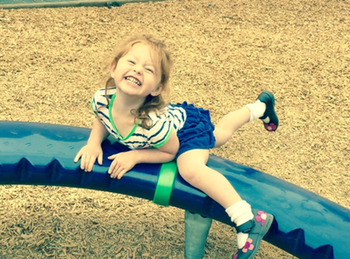
Age three is the beginning of a whole new wave of behaviors and abilities. It’s the earnest start of the long march into and through childhood. Compared to two, you might feel like you’re hanging out with an adult sometimes; this is how I felt traveling with a 3-year-old (vs. a 2-year-old — HUGE difference).
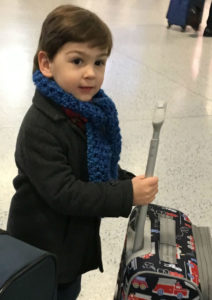
Here’s what you can expect from your toddler between ages 3 and 4.
Disclaimer: This is not a comprehensive behavioral-developmental synopsis. Rather, it’s a cheat sheet outlining broad norms for what you can expect as far as a 3-year-old’s capabilities and conduct.
Reminder: children ages 1-3 tend to go through times of “equilibrium” around whole years (1, 2, and 3) and “disequilibrium” around half-years (1.5, 2.5, and 3.5). You will likely notice, for example, major behavioral changes between 3 and 3.5, and then again more changes approaching 4 years. In comparison to 3-year-olds, who tend to be more cooperative and affable, 3.5-year-olds will tend to act resistant more often.
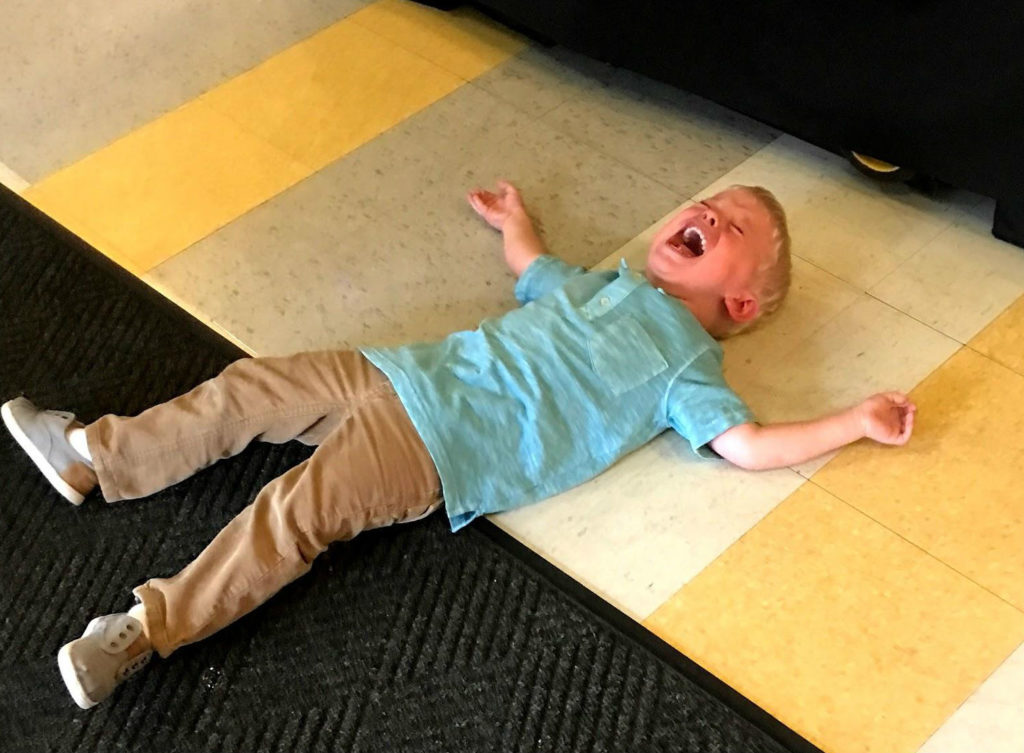
During this year, you can anticipate some major changes in your child’s interests and abilities, although it is crucial to remember that 3-year-olds are still young children with immature brains.
- They are not little adults.
- They are still fickle.
- They are still prone to tantrums and refusals and outbursts.
- They still have a talent for disruption.
Capabilities
Hang onto your hats, folks… the typical 3-year-old is starting to understand some basic logic! This means they can begin to grasp some of “why things happen.” And it means they can begin to partake in problem-solving.
It’s what we’ve all been waiting for!
What does this mean for you, practically speaking? A LOT.
- You can start prompting your child to partake in decision-making, and help him learn to become part of the solution when problems arise.
- You can ask questions.
- You can reference their friends.
- You can hope – cross all your fingers and toes – for some cooperative playtime.
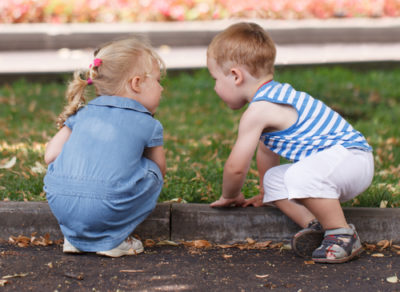
But let’s not get too far ahead of ourselves.
There will be old, familiar problems – the tantrums and rigidity from the previous year do not magically disappear with your child’s third birthday (even though I seriously hoped for this…).
New issues will crop up. With the ability to develop friendships comes the capacity for exclusion (what? already?!). With newfound conversation comes the potential for mean words (you might be wondering: why is my 3-year old so mean??). With the possibility of sharing comes the realization that sharing is not always fun.
Everything going on this year is a reminder that behavioral development is choppy – advancement is often followed by some backtracking and new stumbling blocks. Keep in mind it’s all normal — that’s just how growing up works.
Playtime & Behavior
In addition to their budding capacity for logic, 3-year-olds’ social lives also undergo a major shift this year. This change is most easily visible in the playroom.
Three-year-olds generally like other children – a major point of divergence from one and two-year-olds. Their social interactions are still relatively basic and simplistic (and many still prefer the company of adults), but they are beginning to show actual enthusiasm for being around other children.
Friends, yay!!
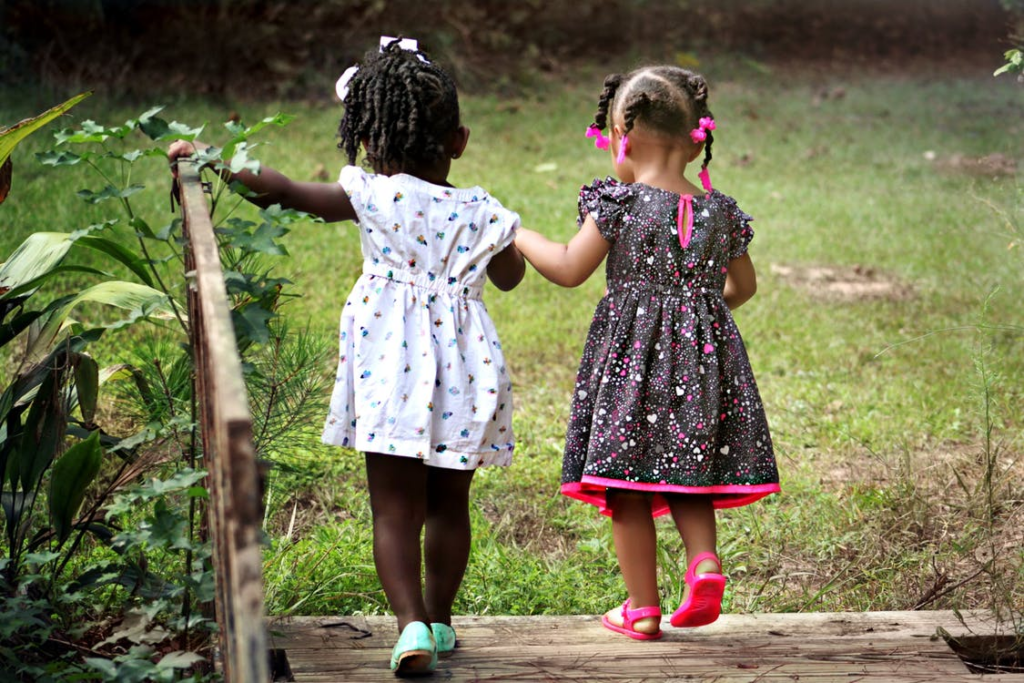
Around age three, the transition from parallel play to cooperative play begins. Some 3-year-olds might even develop actual friendships. In the same vein, 3-year-olds are typically more interested in one another rather than in specific objects/activities – another huge break from the past year(s).
By the time children turn 3.5, they are actually unlikely to play on their own when they are in a group of children. Whereas 1- and 2-year-olds didn’t interact much during parallel play, if you see 3-year-olds not playing together, it may be because some of them are intentionally excluding another child. (Yeah, this stuff starts in preschool, not middle school…). While it’s not welcome, this is typical 3-year old behavior.
Most 3-year-olds will play in small groups (two to three kiddos), and their play develops quickly over the course of the year. A pair of 3.5-year-olds can play more elaborately, and for longer stretches, than a pair of 3-year-olds (yes, six months makes a serious difference!).
They’ll also start talking to each other. Their “conversations” may be brief, self-initiated, or fleeting, but nonetheless their dialogue is expanding. In fact, most start to favor speaking to other children over speaking to adults. And seriously, if you can, listen to some of their conversations – they are priceless.
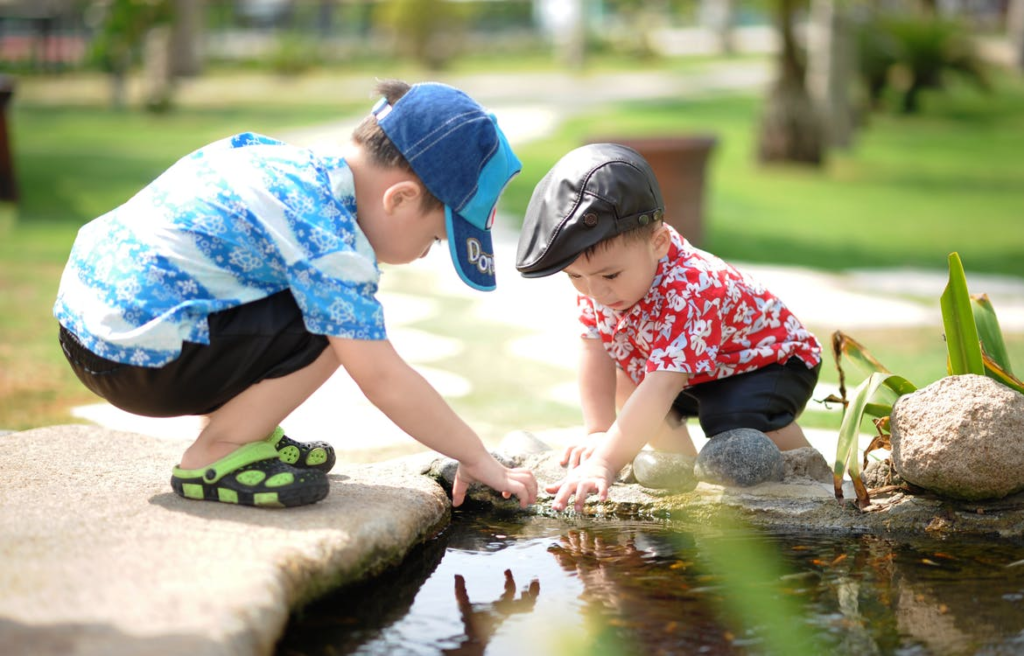
You may also start to see the egocentrism from the previous year begin to decrease as they start to show the potential for sharing (key word: potential — don’t expect sharing to be a consistent performance). Three-year-olds might even start to exhibit generosity, agree to take turns, and show some interest in solving property disputes, as opposed to just showing interest in jacking each other’s toys whenever they please.
As they become more interested in other kids, 3-year-olds’ ability to experience empathy also grows. They are curious about one another as individuals, and will begin showing interest in what other children are doing (and sometimes even admiration).
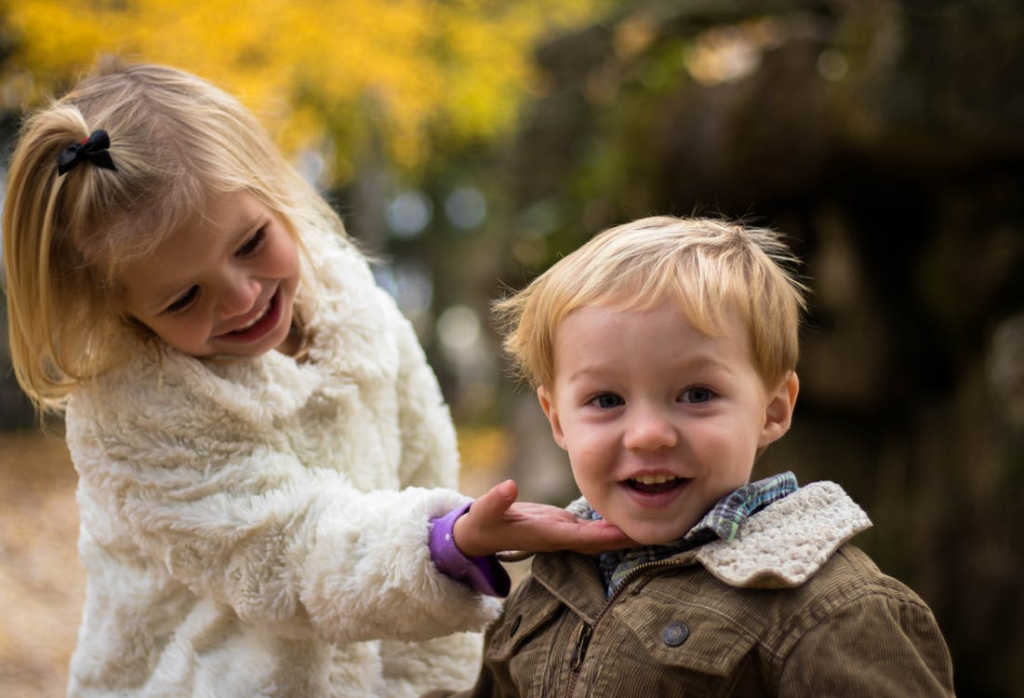
Yup! Compared to age two, three can be pretty awesome. 🙂
Three-Year-Olds and Primary Caregivers
At three years, it is customary to start seeing some specific behavioral trends with primary caregivers. Take Mom, for example. Experts describe that a child’s mother “is the one who matters supremely to him. She is the one he needs to ‘conquer.’ Almost any young child is at his best but also at his worst with his own mother.”
Remember the “study” that went viral claiming children are 800% worse when their mothers are in the room? Real science or not, I know from experience that this is truth!
In other words, 3-year-olds are going to be their most magnificent selves with their primary caregivers, but also their most challenging selves. They are simply more of everything with their primary caregivers (especially Mom). Lucky you!
So no, you’re not crazy. Your kiddo really can act completely normal and wonderful at preschool or daycare, then become a total monster at home!

As mentioned, oppositional behavior will continue into this year. However, refusals will become more verbal (rather than physical) as language skills improve (read: less biting, but more arguments and negotiations).
Tantrums will also become more verbal in nature, with your beloved child yelling at you when he doesn’t get what he wants, rather than throwing himself on the floor (though he may do both! ha).
Now that you know what is considered normal cognitive, social, and developmentally appropriate behavior for a 3-year-old, here’s a brief rundown of behavior that may warrant a call or visit to your pediatrician:
– Doesn’t engage in play with other children
– Doesn’t speak, or did speak/babble and has since stopped
– Has unusual speaking patterns – uses strange tones, repeats words or phrases over and over
– May not respond to his/her name
– Lack of eye contact
– Focuses on a single topic or toy at a time, sometimes obsessively
– Doesn’t engage in pretend play
– Displays rigid behavior and has increased difficulty with transitions (needs to stick to routine)
– Exhibits repetitive motions, such as hand-flapping or arms waving
– Extremely sensitive to many sensations such as smell, touch, noise, fabric, tags on clothes, etc.
– You have the feeling that something “just isn’t right”
Some of these signs may indicate a delay or a more serious problem — or it could be nothing at all. To know for sure, please discuss with your child’s pediatrician.
In Summary
It’s true: kids get easier at three as they develop empathy, learn how to play together and become better communicators. That’s not to say they will become magically cooperative, but you will see glimmers of a rational being start to emerge. Yay!
That said, holding reasonable expectations for your child at this age is your first and most important step in promoting his overall well-being and developmental success, as well as maintaining your sanity (equally as important, parents!). We just can’t expect things of our kids that they are simply not capable of.
When you get the chance, take a peak at our tried-and-true disciplinary techniques for 3-year-olds.
In the meantime, have fun listening to those adorable three-year-old convos. Trust me — it makes all the hard stuff worth it! (Helpful hint: get a notebook and start writing down your kid’s funny quotes… you won’t regret it.)
Beautifully written! Thank you! Sounds so accurate and familiar!! Phew, also reassuring.
Needed this today. Puts things into perspective. My daughter is in between 3 and 3.5 and pushing me harder than ever.
Yes I can see in my just over 3.5 year old much more defiant. I find bossy and so emotional. This is quite reassuring
Where is the part about them being total bullies? My 3y old is so so mean and her friend as well (“go cry with your mum, crybaby” after successfully conquering a toy). I am shocked. Don’t know how to deal with this excessive bullying behaviour. Try to talk to her, but how much can you talk really, they’re just 3y old. I never was like this and neither my husband.
Did she grow out of this bully phase or is this something you needed to knuckle down on?
My son is such a bully to his younger sister. And so s bossy with his friends!
I’m very worried about kindy I just don’t want him to be a bully!!!
I didn’t read it all but from what I’ve been observing over the past 3,5 decades, families have decided to let their children take control. They’re too afraid to “take away” the child’s own identity and so, instead of guiding the child, they ask for permission for everything. “Baby, can mommy change your diaper now?”
Humanity has become ridiculous.
Imagine how families from the past century that had to produce their own food from sunrise to sundown would be able to put food on the table if they were commanded by babies!
The world needs to wake up. Babies are future adults that need to know how to share and respect others when they grow out of their homes where they can scream and beat as they please because their parents are so scared to contradict them.
“Jacking”! “Jacking”? 🤦🏼♀️
Yes. Jacking 🙂
I am a LCSW who is seeing a wonderfully loving father to his 3 year old daughter. The daughter is distant and aloof. Dad stayed home with daughter when mother went out of town on a girl’s trip, daughter completely melted down. Dad came to my office a frazzled mess. He kept asking, “What am I doing wrong?”’ I need help in explaining to him that he is not doing anything wrong. Need help in Boise. Thanks,
Leslie Szasz
Ahh yes, thanks for this comment, Leslie! Nothing wrong indeed. It’s always good to know. 🙂